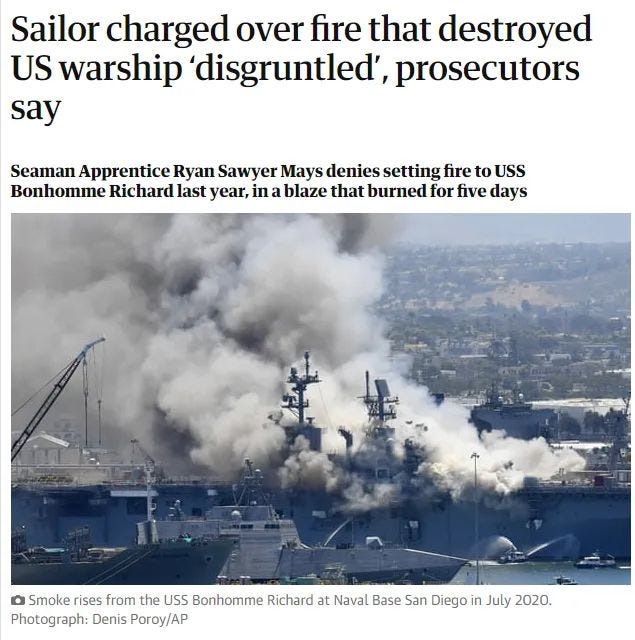“Universal literacy was supposed to educate the common man to control his environment. Once he could read and write he would have a mind fit to rule. So ran the democratic doctrine. But instead of a mind, universal literacy has given him rubber stamps, rubber stamps inked with advertising slogans, with editorials, with published scientific data, with the trivialities of the tabloids and the platitudes of history, but quite innocent of original thought. Each man's rubber stamps are the duplicates of millions of others, so that when those millions are exposed to the same stimuli, all receive identical imprints. It may seem an exaggeration to say that the American public gets most of its ideas in this wholesale fashion. The mechanism by which ideas are disseminated on a large scale is propaganda, in the broad sense of an organized effort to spread a particular belief or doctrine.”
― Edward L. Bernays, Propaganda
This is not an attack on education. What Bernays is saying that is that just because you can read does not mean you can think. In his book he makes a distinction between literacy as an ideal and its use— along with the media— as a tool for social control.
In other words, learning and education in our society are not one and the same.
Education consists mainly of what we have unlearned.”
― Mark Twain
Whether you are reading in school or college or just skimming a newspaper or magazine in the doctor’s office to kill time, you must ask questions to get to the truth of things—or something close to it.
You must realize that truth is a lot like food, it comes in different flavors.
Just as food companies, subvert your sense of taste with sugar and additives and convenient packaging, the media manipulate your mind with things that appeal to intellectual taste-buds trained to want stuff that makes you feel good temporarily but does not sustain and can prove toxic. The mainstream media has its own kind of GMOs.
Check the package.
Just as many people follow others in choosing what to eat or drink— ‘‘I’ll have beer too”— so many people follow others in choosing what to think - or more importantly what not to think. Just as they stuff things into their mouth without thinking, they stuff things into their minds.
Junk food will kill you. Public misinformation will kill everyone.
And social pressure?
The Moskva. Did it sink— or was it sunk?
Bernays is still relevant.
Just Google the sinking of the Moskva.
Did it sink?
Or… was it sunk?
90% of Google speaks with one voice: it was sunk by the Ukrainians.
Consensus?
When you look at the Google entries, you will see they mostly repeat each other, using the same language. If this is some form of “consensus,” it is not achieved through reasoned thought. Rather, it is the homogenization of public opinion through propaganda—rubber stamping. Everybody jumping into the same hole.
Wikipedia makes a pretense of authenticity. It will admit that there are two explanations for the sinking of the ship. Umm…the right one (theirs) and the wrong one.
The Wiki article therefore on the sinking goes into extensive, long-winded, if not torturous detail to explain how this was a great victory for the Ukraine—without noting the discrepancies and contradictions which Simplicius and others — myself included—have written about.
No credence is given to the Russian version that it was an accident. Because y’know — it’s Russian.
Imagine a jury trial. The judge allows the prosecutor to present evidence but prevents the defense from submitting evidence or cross-examining prosecution witnesses. He/ she/ it tells the jury to disregard the defense’s arguments, forget about “reasonable doubt” and find the defendant guilty.
That is what Wikipedia does—as does the rest of the mainstream media of which Wikipedia is an integral part.
So much for justice. The verdict is pre-ordained. In this case — the Ukrainians sunk the Moskva with Neptune missiles.
But now we have Simplicius’s superb, must-read forensic analysis as a corrective. His newsletter is called “Simplicius the Thinker” for a reason.
This article shows conclusively that there is simply no evidence whatsoever that the Moskva was hit by Neptune missiles— that the damage to the ship is not that of a missile strike of any kind. It’s a long article but worth reading right through, maybe twice.
It shows that the Ukrainian story is exactly that—a story—a fiction riddled with and false outright lies and plot holes.
Simplicius was among the first, if not the first, to detail evidence debunking Ukrainian and Western accounts on the now sadly defunct Saker. And now on the anniversary of the sinking, he has revisited the incident, with a longer and more detailed forensic explanation.
That footage mentioned above posted on Twitter by Fennec?
The Ukrainian video just shows a missile being fired — over green grassy fields—in the daytime. The Moskva caught fire at night. And no ocean.
Quibbles
Of course, I don’t accept everything Simplicius writes. I have quibbles.
The title is one.
No, the “Mystery” does not “live on”.
Simplicius’s account puts a knife through the heart of whatever “mystery” people thought there was. Since he has effectively murdered it, the only puzzle that remains might be why people believe anything the Ukrainians say.
“Lie to me once, shame on you. Lie to me twice, shame on me”.
It doesn’t matter how many times the Ukrainians and the MSM lie. They lie hundreds of times, and a lot of people still believe them. They have broken the Shame Barrier.
You could say the “mystery” of the Moskva is no more real than that of any second-class TV mystery — requiring a lot of suspension of disbelief — a fiction held together by fabrications, appeals to the sensational, random speculation, and a touch of paranoid conspiracism.
Also, one must steel oneself to avoid reading spoilers.
However, having trashed the UAF’s Moskva Mystery show, Simplicius notes Martyanov’s theory that the Moskva could have been done in by sabotage, which he seems to find credible.
That’s my other quibble.
The Russian explanation that it was just an “accident” and that they are not sure of the cause (the ship having sunk) is, well, pedestrian—unexciting, if not …well...boring. .
Simplicius posts this:
This explanation buys into the Wikipedia meme— that Moskva didn’t sink — it was sunk.
In which case, sunk by what and by whom. The “mystery” is resurrected.
Missiles out of the picture, that leaves mines, drones, the CIA or MI5/6, or saboteurs.
Indeed, these are all possibilities. So is an Act of God. But what is the probability?
Occam’s Razor and ad-hockery
Everyone knows Occam’s Razor.
This principle really did not belong to William of Occam but to St. Thomas Aquinas. Old Bill used his “razor” only when talking about God and God’s miracles, articles of faith, which cannot be proven.
Today, we have appropriated Bill of Occam’s famously misunderstood notion and apply it often to justify choosing the most convenient answers and convenient solutions whenever we the modern-day equivalent of a Christian miracle — like the Ukrainians sinking the Moskva.
Occam’s Razor is too often used for ad-hockery. That’s when one hypothesis fails, we add a second one ad hoc that is an extension of the first. That’s easier than re-thinking our premises and questioning the miracle.
Simplicius — and Martyanov — are still unwilling to accept give up the idea that the ship was “sunk”. They are locked into the notions of intelligent design or agency - and the Ukrainians are obviously the only ones with a motive for sinking a Russian cruiser.
If it wasn’t a missile, drone or mine - it would have to be sabotage.
Which is a lot more interesting as a theory than an unexplained accident.
Accidents happen
For me, life, like evolution, is a series of accidents. No intelligent design. No dumb design No design at all.
In this case therefore take the Russians at their word: It was an accident and they don’t know exactly why.
Why don’t the Russians how the accident happened, you ask?
Because the Moskva sank, of course. No way of finding out.
It was old, should have been scrapped years ago, and was full of antiquated wiring.
If you have ever lived in an old apartment, like I do, you know that crap builds up and stuff breaks and if you have old wiring, that can be dangerous. Be careful about plugging in something modern. If you live in Tokyo as I do, worry about Earthquakes. If you have a batleship, worry most about the weather.
Of course, I am biased. I am old too— and am an accident waiting to happen. Being “on the spectrum” raises the possibilities.
Facetiousness aside, damage to naval vessels, especially fires, happens all the time.
With the increasing complexity of modern technology, it is almost unavoidable— usually the result of small problems which go unfixed and accumulate over time and are compounded by human errors, which also build up over time. Why does Windows 11 give you the Blue Screen of Death? Often problems left over from Windows 3.0. And, of course, as complexity increases so does the possibility of system glitches and human error.
Fires are by far the most prevalent cause of ship damage, but their regular occurrence precludes a comprehensive statistical analysis. According to official Navy statistics, from 1973 to 1983 there were an average of 148 fires per year on U.S. ships or at shore bases.
Oops!
SAN DIEGO — A military judge on Friday acquitted a sailor of arson in a fire that destroyed the USS Bonhomme Richard, a blow to the Navy as it faces allegations of improper training and maintenance of the $1.2 billion amphibious assault ship.
The seaman accused of causing a fire on USS Bonhomme Richard was acquitted at his court-martial - which established it was accident, although the actual causes were hard to establish.
The US Navy had immediately assumed “Who Dunnit” since sabotage was a more convenient explanation than a “kluge” of problems, which would be messy and maybe impossible to unravel. Occams’s Razor again. Beware using a razor to shave your pubes.
In the case of the Moskva —I will go with the Russian MoD’s explanation. An accident.
If it was sabotage, the Russians would be quick to say so, if only to rally public opinion against the Russian Fifth Colum
The Pentagon “Leaks” or Pentagon “Incontinence”?
In a complex world, sometimes the answers to things beg explanation. You have to look beyond individuals to systems.
The current Pentagon Leaks are a good example. The MSM and the Pentagon tell us that that it was just one 21-year-old “who dunnit”. A 21-year-old War Gamer is the newest dog to eat homework.
But the many contradictions in what we are told imply something more complex — a system problem, with multiple actors, as you will see if you read Larry Johnson—although Larry sees some kind of “intelligent’ design and looks for intention and purpose, agency and planning, where I just see stupidity, human beings messing up.
As you get older, you tend to leak. These involuntary leaks are often a combination of aging muscular valves, the bladder, the kidneys and assorted internal plumbing. Cancer and UTIs can complicate things. But there is rarely a quick fix and a single, simple cause.
For me, the Pentagon “leaks” are a misnomer. It should be “Pentagon Incontinence”. The US military and its Unintelligence Community are old and geriatric and should wear nappies. And to blame one person for their inability to control the flow of information — in this case, Jack Texeira alone— is a crock. A crock full of? Yeah, you guessed it.
It will change nothing. There will be more leaks.
In any case, the “leaks” did not provide any new information. Nothing that we didn’t know. They are just the Pentagon pissing and the Media drinking it.
It is indescribably shocking and sickening that the nation’s two largest media outlets were the ones who did the FBI’s work and hunted for the leaker and outed him.
The NYT and WaPo did this dirty work with the help of the CIA/ MI5/6 front Bellingcat. Shocking? Hardly. Sickening, of course.
The Central Intelligence Agency owns everyone of any significance in the major media.
William Colby
It proves Bernays’ point that just as we are what we eat, we are what we read.
Reading, rubber stamps…and cardboard
My caveats should not detract from the superb work of Simplicius and Larry Johnson.
Who am I to pick nits anyway.?
I'm a guy whose main accomplishment so far has been learning to read at the age of 8, late due to my ASD. I am still working on tying my shoelaces. Reading is a big thing for me. Reading intelligently more so.
Universal literacy— as Bernays says—was sold as conferring on us “ a mind fit to rule”.
But a lot of people just end up rubber stamping opinions based on other people’s rubber stamps. It’s an intellectual daisy chain. And it’s banal.
Evil comes from a failure to think…. That is the banality of evil.”
― Hannah Arendt, Eichmann in Jerusalem: A Report on the Banality of Evil
People like Simplicius and others—including Aleks at Black Mountain, Larry Johnson, Alex and Alexander at Duran, Brian Berletic at New Atlas, Big Serge, Godfrey Roberts and “b” at Moon of Alabama, and of course Larry Johnson are not banal, quotidian, or derivative.
They do not peddle mass produced “facts” but original perceptions of things actually happening—their vision unfiltered by the orthodoxies which represent political agendas, rubber stamped by the MSM and the little Eichmanns known as “journalists”. They research, eschewing packaged, easy to ingest assumptions and the explanations that they generate. They question. They think forensically.
Our culture is a box — you need that box sometimes. It’s useful to store stuff, like old sweaters.
But it is cardboard, rather like the cutouts we call politicians.
Just as we should not confuse politicians with real people, we should not confuse the banality of the box with reality. Nor should we want to live there. Homeless people live in boxes because they have no choice. But you can choose not to.
Substack and hunter-gatherers
For most of human history we were hunter-gatherers, who lived in nomadic bands too small to be called tribes. Survival depended on collaboration and the ability to adapt to changing conditions. Neurodiversity was not the exception but the rule since it worked as a cognitive force multiplier to enhance group survival. Everybody thought “of the box”. If only because there were no boxes in these “fiercely egalitarian: societies.
10,000 years ago, the climate changed— and the environment and we adapted — and invented boxes. But evolution has hardwired us to adaptive intelligence. Our heritage remains.
Simplicius et al are urban hunter-gatherers.
What they hunt and gather is information. They are intellectual omnivores they must adapt to their prey, which are various.
Information is not truth until it is digested. For it to be digested, it must be cooked and eaten — and shared— for hunter-gatherers do not eat alone.
It is in the cooking and the sharing that we know value.
It is the conversation and discussion around the fire safe from predators at night that allows us to “true” up what we understand in conversation around the fire, safe from predators in the night.
Substack is the fire.
Let us thank those who offer us sustenance. I thank those who write and comment.
ME….
I write this newsletter partly as penance.
I spent years as a media shill. Worse, I a promised my father who was a journalist I would never become one and broke that promise when I went to Southeast Asian during the Vietnam War. Then I continued to break that promise.
Like both my parents and many others in my family, I am “on the spectrum”, at least according to a Johns Hopkins psychiatrist.
“An interesting case”, he said. LOL.
Thank god he didn’t put me in a cage and attach electrodes.
My “disorder” makes a lot of ordinary things hard for me— but other things easier.
I think “out of the box” naturally because I have never fit very well — in anything, boxes or whatever.
Being intellectually homeless, gives me an edge in things which require seeing things that others don’t — while, of course, missing things that everyone else sees. It also confers polymathy — I study odd things intensely because I understand so little and the world is confusing.
I value the comments I get from all sorts of people. They inject some order into my disorder and I learn from them constantly.
So thank you for that.
And thank you to all those who subscribe. You make me feel like I belong.
— Julian









Always interesting to read your thoughts.
Wonderful, touching and human Julian. I share your age and a lifetime of your confusing condition.
For what it's worth I managed with help to open a substack thing yesterday and will post some poems for general comment and amusement.
Health and happiness to you.